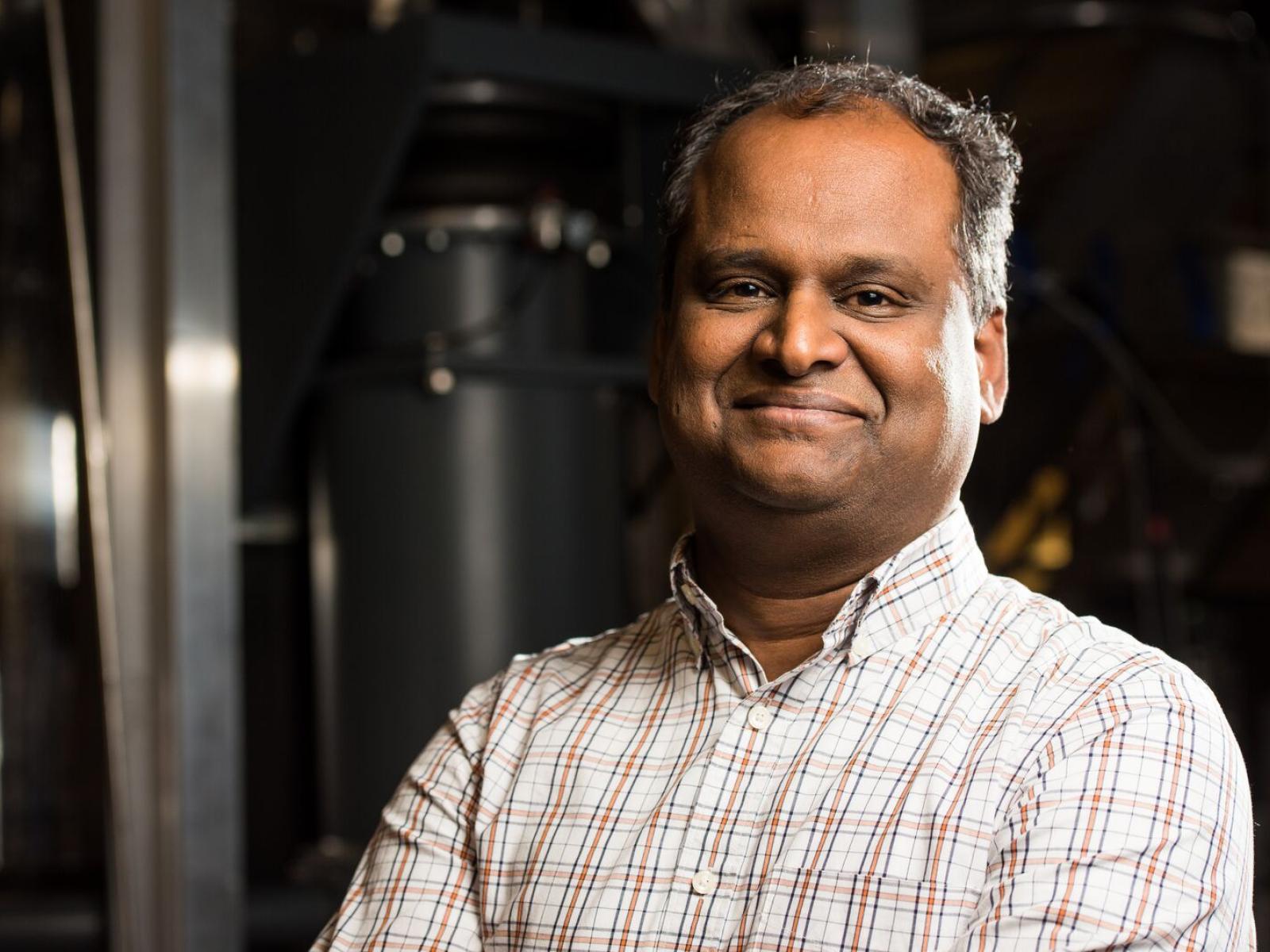From Simulation to Synthesis
Murugesan discusses AI-accelerated materials discovery at the Battery Forum

Vijay Murugesan develops better energy storage materials with the help of artificial intelligence.
(Photo by Andrea Starr | Pacific Northwest National Laboratory)
Researchers have used computational techniques to advance scientific discovery since the earliest days of computing. Now, scientific research is experiencing another leap forward with the intersection of high-performance computing, artificial intelligence (AI), and cloud computing.
Materials scientist Vijay Murugesan is one of the scientists leveraging these systems to advance his research. At Pacific Northwest National Laboratory (PNNL), Murugesan combines advanced computation with experimental validation to create new battery materials as part of a multi-year collaboration with Microsoft. He recently presented this research at the Volta Foundation’s Battery Forum with Chi Chen from Microsoft on August 12. The Volta Foundation is the world’s largest community of battery professionals, and fosters innovation and collaborations amongst its 50,000+ members.
“The future of energy is renewable,” said Murugesan. “But energy generation from renewable sources can be sporadic. Batteries allow us to store energy so we can use it whenever and however we want.”
To build better battery materials, the team combined machine learning with physics-based models to narrow down the list of candidates from over 32 million to just 18 promising materials. They then synthesized and characterized the top candidates as potential battery materials.
Research is ongoing to see if these candidtes are suitable for longer term use in commercial products. The team’s published research in the Journal of the American Chemical Society demonstrates the power of AI in accelerating materials discovery.
Published: September 13, 2024